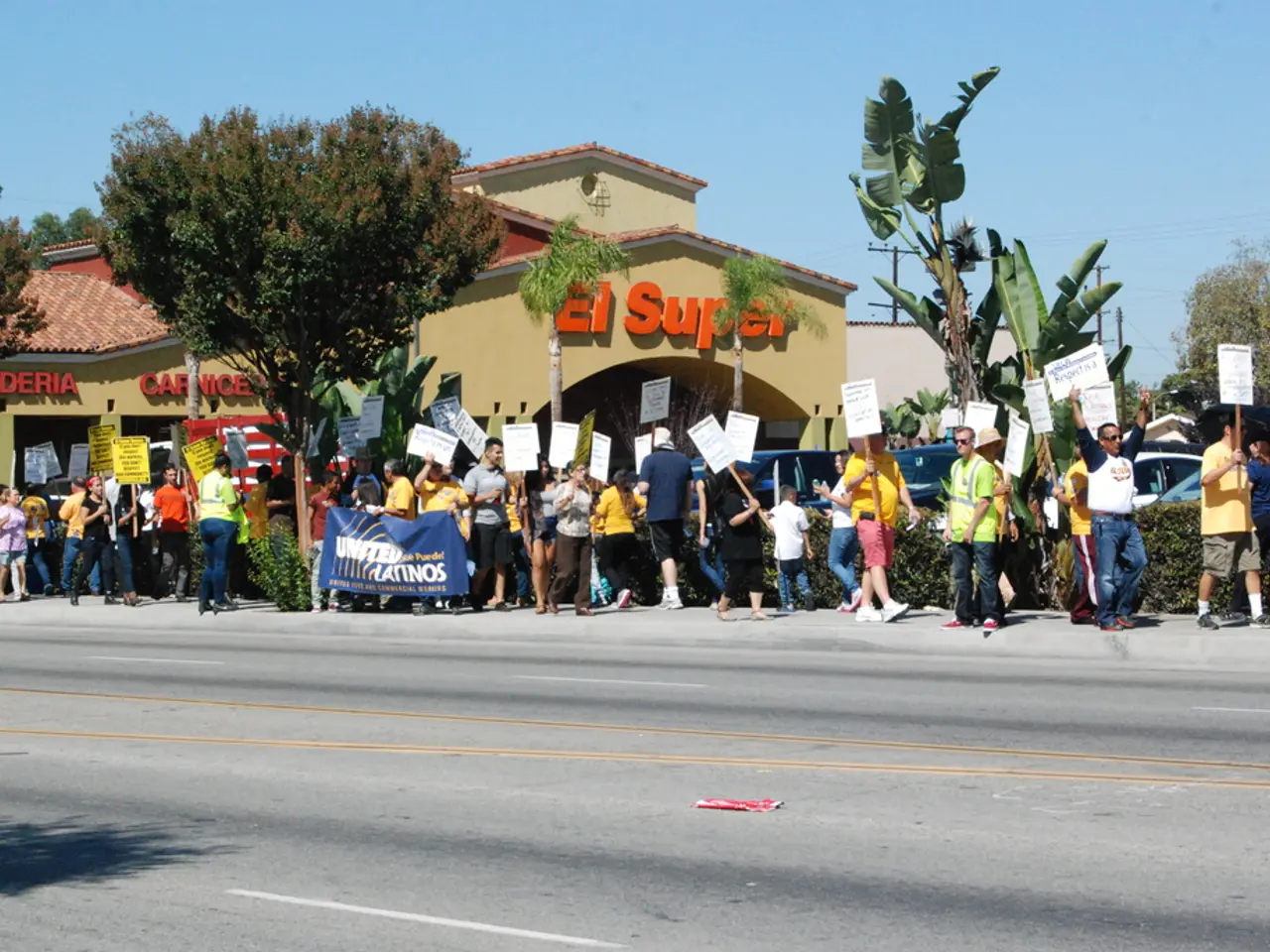Switzerland conducts a public vote on the future of nuclear energy
The Swiss energy reform referendum, scheduled for May 21st, 2023, is a significant event in the country's energy policy. The referendum revolves around the proposed lifting of the ban on constructing new nuclear power plants, marking a major shift towards addressing rising electricity demand and energy security concerns.
The proposed change would allow companies to apply for licenses to build new reactors, subject to parliamentary approval and a successful referendum. However, it does not obligate immediate construction of new plants.
The current nuclear ban, enacted in 2018, would be lifted, keeping the nuclear option open for the future energy mix. Switzerland's existing four nuclear reactors generate about a third of its electricity, but their long-term future remains uncertain if renewables do not expand sufficiently. The government emphasizes that lifting the ban does not guarantee new plants will be built, acknowledging the high regulatory and financial risks involved.
The reform does not exclude the expansion of renewable energy sources. Instead, the government supports a consistent expansion of renewables alongside nuclear power, stressing that they are not mutually exclusive. The revision aims to address electricity supply challenges amid geopolitical pressures and market uncertainties, aiming to maintain energy security by keeping all options open for a balanced mix.
While specific price impacts are not detailed in the sources, opposition critiques cite concerns over the high costs of new nuclear reactors and waste disposal challenges. However, the government and proponents likely view nuclear energy as a way to stabilize the grid, which could help moderate price volatility associated with energy shortages.
The Swiss government’s motivation includes reducing energy dependency and potential deficits if renewables do not progress fast enough. Lifting the nuclear ban could lessen reliance on energy imports by securing domestic production capacity.
In summary, the referendum involves a legislative change to lift the nuclear construction ban, intertwined with ongoing efforts to boost renewables. The goal is to ensure Switzerland's long-term energy security and a diversified, flexible electricity supply while balancing cost, environmental, and political concerns. Final decisions rest with parliament and voters, with a referendum expected by 2026.
- The energy reform referendum in Switzerland, scheduled for May 21st, 2023, is linked to policy-and-legislation that revolves around the nuclear industry.
- The proposed lifting of the nuclear ban could open opportunities for environmental-science, as companies may apply to construct new reactors, subject to parliamentary approval and a successful referendum.
- The finance sector will likely play a crucial role, as the high regulatory and financial risks involved in constructing new nuclear power plants may affect the energy market.
- The general-news coverage of this event may reflect debates on the advantages and disadvantages of nuclear energy, as well as the implementation of renewable energy sources to ensure a balanced mix for the nation's energy supply, all while addressing environmental and political concerns.




